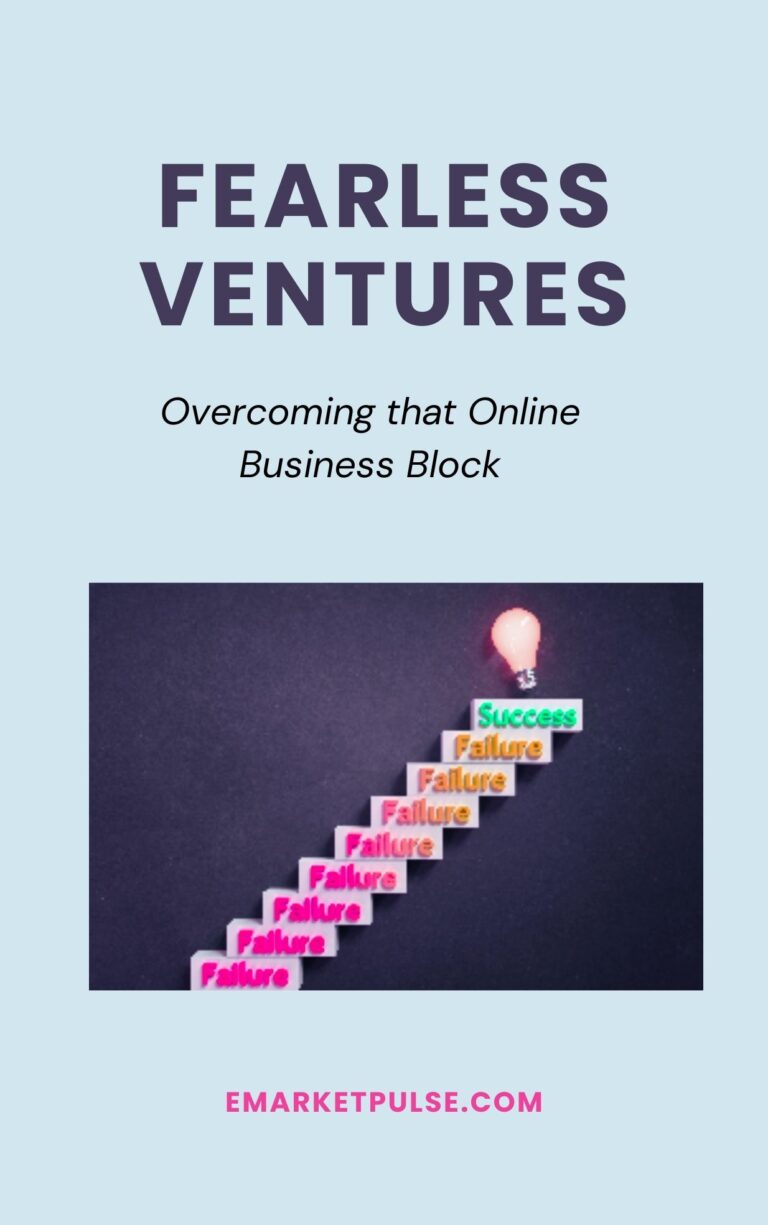

The Role of a Business Plan in E-commerce Ventures to Reduce Fear
Introduction:
Embarking on a new e-commerce venture is an exhilarating journey, but the fear of the unknown can cast a shadow on even the most ambitious endeavors. To navigate these uncertainties and instill confidence, creating a solid business plan is paramount. Here we will examine the significance of a comprehensive business plan when starting a new e-commerce venture, focusing on how it serves as a powerful tool for overcoming fear.
Understanding the Fear Factor in E-commerce Ventures
The world of e-commerce is dynamic and competitive, with challenges ranging from market saturation to evolving consumer behaviors. The fear of failure, financial loss, or the unknown can be paralyzing for new entrepreneurs. A well-structured business plan acts as a roadmap, providing clarity, direction, and, most importantly, a strategic approach to overcoming these fears.
FREE: GUIDE TO CONQUER THOSE FEARS

Learn how to put "FEAR OF FAILURE" aside and ACTION those ideas today!
BOOST your chance of success.
- FREE membership to our Weekly Insiders Secrets.
- FREE tailored resources and gifts.
- PLUS qualify to receive personal email support from one of our resident experts.
* We respect your privacy. We will not spam you.
The Role of a Business Plan in Alleviating Fear
1. Clarifying Objectives and Vision
A business plan forces entrepreneurs to articulate their business goals, mission, and vision. This clarity is transformative, turning vague aspirations into tangible objectives. With a clearly defined path, the fear of uncertainty diminishes, replaced by a sense of purpose and direction.
2. Risk Mitigation and Contingency Planning
Fear often stems from the unknown, and risks are inherent in any business venture. A well-constructed business plan identifies potential risks and outlines strategies for mitigation. This proactive approach minimizes the fear associated with unforeseen challenges, as entrepreneurs are better prepared to face and overcome obstacles.
3. Financial Forecasting and Budgeting
Financial concerns can be a significant source of anxiety for new entrepreneurs. A business plan includes detailed financial projections, budgeting, and break-even analysis. Understanding the financial landscape provides a sense of control, reducing the fear of running into financial difficulties unexpectedly.
4. Market Analysis and Customer Insights
Knowing your target market and understanding customer behavior is crucial. A business plan compels entrepreneurs to conduct thorough market research, identifying opportunities and potential pitfalls. This knowledge becomes a shield against the fear of launching into an unfamiliar market without a clear understanding of consumer needs.
5. Operational Strategy and Scalability
The fear of being unprepared for success is real. A business plan outlines the operational strategy, scalability plans, and resource requirements. Entrepreneurs can confidently scale their operations knowing they have a structured plan in place, mitigating the fear of being overwhelmed by growth.
Key Components of a Comprehensive Business Plan
1. Executive Summary
This concise overview introduces your business, mission, and key objectives. It serves as a snapshot of your entire plan.
2. Business Description and Vision
This section provides a detailed description of your business, including its mission, vision, values, and long-term objectives.
3. Market Analysis
Conduct a thorough analysis of your target market, industry trends, competition, and potential opportunities or threats.
4. Organization and Management
Outline the structure of your organization, key team members, and their roles. This section establishes your team’s capability and expertise.
5. Products or Services
Detail your offerings, highlighting their unique selling points and value propositions. Discuss pricing strategies and positioning in the market.
6. Marketing and Sales Strategy
Explain how you plan to market and sell your products or services. This includes your digital marketing strategy, sales channels, and customer acquisition plans.
7. Financial Projections
Provide detailed financial forecasts, including income statements, balance sheets, and cash flow projections. Outline your budgeting and break-even analysis.
8. Risk Analysis and Mitigation Strategies
Identify potential risks and challenges and detail strategies for mitigating these risks. Include contingency plans for unforeseen circumstances.
Conclusion
Starting a new e-commerce venture is undoubtedly a journey fraught with uncertainties, but a well-crafted business plan can serve as a beacon of guidance, dispelling fears and instilling confidence. As you embark on your entrepreneurial journey, remember that a comprehensive business plan is not just a document; it’s a strategic tool designed to address uncertainties head-on, paving the way for strategic success and sustained growth.
MORE LIKE THIS...
Bringing you the latest information, ideas, products and services for your E-commerce business.
Copyright 2024 E-Market Pulse
Contact Us
We may receive compensation from partners listed through affiliate partnerships, at no cost to you. This doesn’t influence our ratings, and the opinions are our own
Subscribe to our Newsletter
Get updates on products and services specially targeted to help you succeed.
